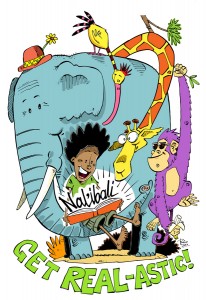 Illiteracy in South Africa is a grave problem and we’ve tended to approach it with the solemnity it deserves. Each year, we hold up the grim results of the national assessment of literacy in schools and design serious plans to improve them. We stack the curriculum primly with words and phonics, all in the correct order and printed on worksheets.
Illiteracy in South Africa is a grave problem and we’ve tended to approach it with the solemnity it deserves. Each year, we hold up the grim results of the national assessment of literacy in schools and design serious plans to improve them. We stack the curriculum primly with words and phonics, all in the correct order and printed on worksheets.
All well and good, but where are the stories? Early childhood development (ECD) centres, Grade R facilities and schools should be awash with storybooks. But many are not. A 2008 study of ECD facilities in three provinces found that 20% of registered centres and 40% of unregistered facilities had no storybooks, nor even paper to write on. In schools, many provinces make provision for only one storybook per child per year; the rest are textbooks and basic readers. And no, ‘See Spot Run’ is not a story.
Children should be wide-eyed, hair blown back, their fancy tickled by their first experience of schoolbooks. The classroom should be filled with chatter and laughter as they share stories with one another – because that’s how they build the circuits of their brains that link language, memory, emotion and concepts. That’s how they play with language and their imagination to solve problems and think differently. It’s how thought processes become sophisticated.
Children should be playing on the jungle gyms of the mind – twisting and somersaulting, looking at the world upside-down – not sitting on the cross-bars waiting to hear what next they’re expected to do.
David Harrison is the CEO of the DG Murray Trust, a South African grant-making foundation committed to investing in the potential of children and young people.
